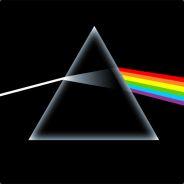I've been using Windows 8 Pro for about 2 weeks now. So far, I absolutely enjoy it!
I do gaming, social media, movies, music, C# and Java development and just about everything with it.
The major complaints are kind of odd, imho.
---- People say, "It's basically the same thing with a little better memory management" then go on to say "It's a regression", yet give no reasons why it's a regression.
----"It's designed for tablets" isn't really a negative comment about Windows 8. Instead, the comment is just a simple fact, the new start menu is much more usable for a tablet than the old start menu (from Windows 7). But did you also notice the new start menu is more usable for desktop/laptops as well, when compared to the start menu from Windows 7?
----"History shows us every other Windows OS release is bad". Are you going to base your judgement of Windows 8 based on that statement alone? MEME's on the Windows 8 logo isn't really a professional or logical way to review an OS. Think about how ignorant that thought process is.
Windows 8 seems faster and cleaner to me. All of the desktop/start menu clutter is now gone and I'm left with a much more usable desktop interface. I almost never have to use the new start screen, but when I do it's faster than using the old start menu. I can also have 'metro style' apps running in the background (great for iHeartRadio and other music apps) that don't clutter up my workspace.
Windows 8 is almost exactly like Windows 7, except it now has a MUCH more robust start menu and better search function. It also supports multi-monitors in a much more functional way. For example, I can have my taskbar items only show up on the monitors that they are open on, which is very useful (and again removes clutter). Another example, those linux users who gloat about having multiple desktops at once can now lavish in the ability to do just that with Windows 8. You have the traditional desktop and you have a new 'metro' style desktop, both can be open at the same time and multiple monitors running different apps (granted, the metro 'desktop' only runs metro apps). Try and think about the usefulness of the new setup. Personally I've found it very very useful to have 2 desktops running at the same time.
The problem is, I believe people WANT to hate it before they use it. So, when they finally do use it they only see the negative, but ignore that fact that nothing has been taken away from their regular desktop experience. In fact, the new start menu, search function, and ability to install metro style apps greatly enhances the Windows OS experience.
Anyway, I haven't seen a logical reason for why Windows 8 is worse than Windows 7. I have, however, experienced a lot of reasons for why Windows 8 is much improved over Windows 7.








